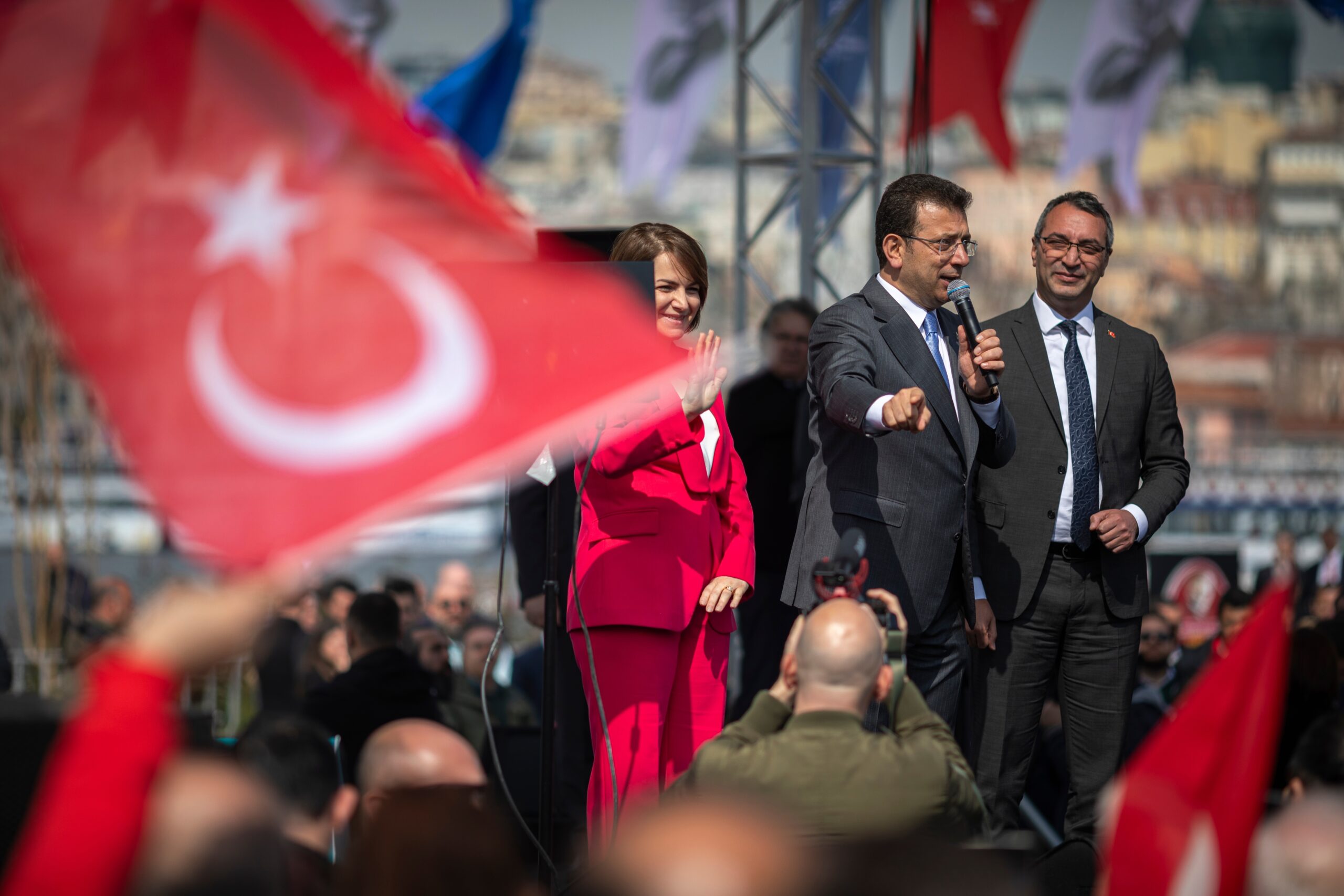The 2024 Turkish Elections Were a Warning for the Global Right
Turkish conservatives must adapt in the face of voter dissatisfaction.

In 1977, Israel witnessed what was termed the “mahapach,” a Hebrew word for upheaval or revolution, as the right-liberal Likud party ended 28 years of left-center governance. A similar seismic shift seems to be unfolding in Turkey, echoing through the corridors of power in Ankara to the streets of Istanbul and beyond. The 2024 local elections in Turkey have emerged as a watershed moment for the nation’s conservative and nationalist factions, indicating a tectonic shift in the political landscape that may have profound implications for the country's future.
On March 31, 2024, Turkey’s local elections set a different tone from past polls. The People’s Alliance, a coalition composed of the ruling Justice and Development Party (AKP) and the Nationalist Movement Party (MHP), experienced a notable setback, losing control over several key municipalities. This marked a departure from the fervor that characterized the May 2023 General Elections, with the repercussions of this electoral outcome poised to significantly influence the role of political actors in Turkish society.
The Republican People’s Party (CHP) emerged as the primary victor, relegating the AKP to second place—a development viewed as a severe blow by Turkish conservatives and right-wingers. Various factions within these groups have speculated on the reasons behind their defeat; a prevalent theory suggests that the electorate aimed to send a stern message to the ruling elite due to the country's economic downturn. This perspective finds resonance within the context of Turkish right-wing politics, where the relationship between conservative social groups and their political representatives is not based on mutual exchange.
A deep-rooted trust in strong leadership, coupled with an unwavering belief in the leader’s infallibility, fosters an organic bond between the leader and his party, rendering internal reforms challenging. Additionally, the mystical reverence for the state held by Turkish conservatives discourages public dissent. In this vein, the local elections presented an unprecedented opportunity for Turkish conservatives to voice their political discontent in a dramatic fashion, relegating the ruling party to the opposition benches at a local level.
Moreover, the 2024 local elections signify a setback for the Turkish right at large, with the exception of the New Welfare Party (YRP), led by Fatih Erbakan, which seemed to defy the trend by embracing the political legacy and rhetoric of his father, Necmettin Erbakan. The YRP's platform, focusing on anti-vaccination, nationalist-Islamist themes, and a number of other distinct policy propositions, unexpectedly attracted up to 7 percent of the vote. Disenchanted AKP supporters found refuge in the YRP, buoyed by the belief that such a shift would not undermine the AKP’s standing. Post-election analyses, however, indicate that the People's Alliance’s vote share hovered around 49 percent, with the anti-Erdogan coalition slightly leading at 50.2 percent. Despite the contraction of mainstream right-wing parties, this does not necessarily denote a paradigm shift among the right-wing electorate.
The relegation of AKP to second place has ignited fervent debate among Turkey’s right-wing circles. While some attribute this decline to economic malaise and poor candidate selection, a broader analysis reveals macro-scale factors at play. The genesis of AKP can be traced back to societal divisions between the periphery and the center, propelled by the capitalist transformation of the Turkish economy and the centralization of state bureaucracy. As the political voice of the marginalized, AKP initially rose to prominence. Over time, however, the party’s pivot towards conservative and nationalist rhetoric led to the alienation of its pragmatic and liberal elements, culminating in the creation of a new “other.”
The “iron law of oligarchy,” by which decisions by a select party elite began facing rejection at the grassroots level, and an identity crisis within conservatism underscore a complex milieu. The conservatives’ prolonged tenure in power, coupled with an increasingly intimate relationship with the state apparatus, has engendered a new political orthodoxy, sidelining dissenters as security threats. Moreover, the inability of the conservative ideology to adapt to changing circumstances, gravitating towards a geopolitical revisionist stance, has surfaced as a salient challenge.
The central dilemma for advancing a conservative agenda in Turkey revolves around the political and geopolitical ramifications of Islam. AKP’s challenge in crafting a comprehensive conservative doctrine is compounded by transnational religious affiliations, notably the concept of the ummah. This global Islamic solidarity occasionally hampers the full realization of a national identity, as demonstrated in debates over Turkey’s trade relations with Israel. AKP’s foreign policy rhetoric since the Arab Spring, aimed at addressing the ummah’s issues under Turkey’s stewardship, has witnessed a recalibration post-2020, yet its societal echoes persist.
Subscribe Today
Get daily emails in your inbox
Looking ahead, the ramifications of the 2024 elections for Turkey are poised to be far-reaching, particularly in shaping Turkey’s engagement with global powers like the U.S. ahead of the 2028 elections. Turkey’s economic reliance on external financing underscores the necessity of strengthening partnerships with the EU and the U.S. A potential alignment between Erdogan and a Trump-led U.S. could foster cooperation on regional and global fronts, sharing a mutual understanding. This could, consequently, bolster Erdogan’s influence within the realm of domestic politics.
Nevertheless, a glaring deficiency within Turkish conservatism is the lack of engagement with conservative factions beyond its borders, contributing to the stagnation of its domestic agenda. Fostering ties with American conservatism could serve as a pivotal step in rejuvenating Turkey’s conservative movement.
While the local election results in Turkey spell a significant setback for the conservative-nationalist bloc, it is imperative not to overlook the nearly 49 percent vote share secured by the right. This percentage embodies the most significant political capital for the right wing as it gears up for the 2028 elections, signaling that the conservative base, although shaken, remains a formidable force in Turkish politics.
Comments